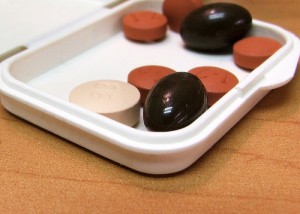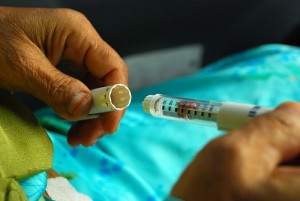Diabetics who take metformin are at high risk of developing vitamin B12 deficiency, according to recent studies on the correlation between metformin and low vitamin B12 levels in patients with diabetes.
What is metformin?
insulin levels in type 2 diabetics. Metformin is also commonly known as glucophage, glumetza, and fortamet. Metformin lowers glucose levels in the blood by controlling the liver’s glucose production, sensitizing the liver to insulin and inhibiting carbohydrate absorption.
Metformin lowers vitamin B12 levels, say scientists
Recent studies show that long-term usage of metformin reduces vitamin B12 levels, causing vitamin B12 deficiency.
- Researchers discovered that 40% of type 2 diabetics who were prescribed metformin had dangerously low levels of vitamin B12 and suffered from B12 deficiency.
- Of the metformin-using diabetics who had low B12, approximately 77% also suffered peripheral neuropathy, a type of nerve damage which occurs often with type 2 diabetes.
- Doctors strongly urge any diabetics currently taking metformin to get tested for B12 deficiency, and to supplement vitamin B12 immediately.
- One of the most dangerous symptoms of vitamin B12 deficiency is neurological damage, such as peripheral neuropathy.
Type 2 Diabetes Often Undetected- Do You Have These Symptoms?
What are the symptoms of peripheral neuropathy?
Peripheral neuropathy is defined as nerve damage in the arms and legs. Peripheral neuropathy is one of four forms of diabetic neuropathy, the others being autonomic, proximal, and focal neuropathies. Some symptoms of peripheral neuropathy are:
- Pain, tingling or numbness in the hands and/or feet
- Loss of sensation is often likened to the wearing of thin gloves or socks
- Pain associated with peripheral neuropathy is described by patients as a burning sensation in both hands or feet
- Lowered sensitivity to temperature
- Muscle cramps
- Loss of balance and coordination
Diabetes is the most common cause for peripheral neuropathy, accounting for 30% of all cases; it can also be caused by infections, autoimmune disorder, toxins or traumatic injuries.
What are the symptoms of vitamin B12 deficiency?
Vitamin B12 is found in protein-rich food sources such as lean beef, fish, poultry, eggs and cheese. Vitamin B12 is essential for proper functioning of the nervous system, in addition to producing red blood cells and DNA production.
Selectively excluding vitamin B12 from your diet can lead to B12 deficiency. Also, individuals who lack intrinsic factor, such as patients of pernicious anemia, cannot digest vitamin B12 naturally from food sources. People who are advised to supplement with vitamin B12 are vegans, weight loss surgery patients, individuals with gastrointestinal disease and diabetics who take metformin.
The symptoms associated with vitamin B12 deficiency are:
- Chronic fatigue
- Depression
- Numbness or tingling in the hands and feet, as caused by nerve damage
- Short-term memory loss
- Aggression
- Altered taste perception
- Imbalance and decreased coordination
- Sleep disturbances
Left untreated, vitamin B12 deficiency could culminate into severe, irreversible nerve damage and, in rare cases, death.
How can diabetics who take metformin avoid vitamin B12 deficiency and peripheral neuropathy?
Only a blood test can determine if somebody has vitamin B12 deficiency. Doctors advise all diabetics who take metformin to get a screening for B12 deficiency, and to follow up with regular blood tests. If diagnosed with vitamin B12 deficiency, physicians may prescribe a course of B12 injections to be inserted in the thick muscular tissue below the buttocks.
Some individuals have difficulty withstanding painful injections on a regular basis; fibromyalgia patients, children with autism, and others are often advised by physicians to take weekly supplementation of vitamin B12.
For more information on vitamin B12 deficiency, diabetes and metformin, please read:
Diabetics, Put On Your Walking Shoes
B12 Deficiency can really Get on your Nerves
Sources:
Natural News, PCOS Nutrition Center,MedicineNet, Web MD, Mayo Clinic, Neuropathy Association, National Diabetes Information Clearinghouse













